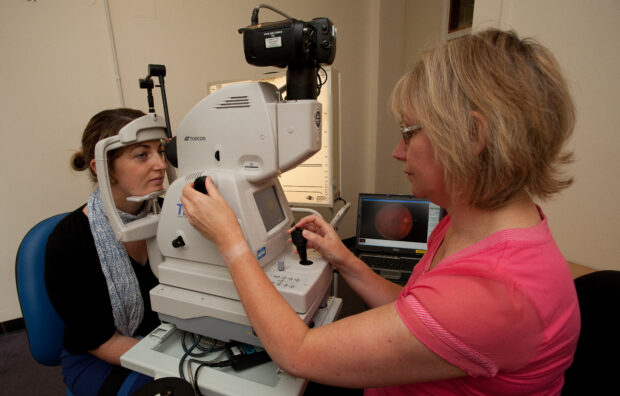
Earlier this year we published a blog article asking diabetic eye screening staff to complete a quick survey giving feedback on our national key performance indicator (KPI) DE3.
We wanted to know in more detail why screening providers were having difficulty hitting the acceptable threshold for this KPI, which measures the timeliness of referral to hospital eye services for people found to have sight-threatening eye disease.
We had a good response from local services that has helped us to understand where the issues are so that we can provide support if possible. This is a summary of the results.
Roles of survey respondents
The 55 respondents included:
- 2 clinical leads
- 3 commissioners/screening and immunisation team members
- 5 failsafe officers
- 33 programme managers/managers
- 2 others
Responses by region
Respondents by screening quality assurance service (SQAS) region included:
- 6 from London
- 15 from Midlands and East
- 18 from North
- 15 from South
- one other
Issues with achieving DE3
Respondents highlighted a number of challenges in meeting the acceptable threshold for DE3.
The main issue highlighted was patients not attending appointments, as this KPI deals with small numbers. Lack of hospital eye service (HES) capacity to deal with the volume of referrals was also mentioned by many services.
The highlighted issues included:
- individuals who did not attend (DNA): 33
- HES capacity: 19
- small numbers impacting on KPI: 8
- poor feedback or communication from HES: 8
- grading capacity: 3
Suggestions for improvement
We asked for ideas of how KPI DE3 performance could be improved. Suggestions included:
- contact with patient via telephone before initial appointment or second appointment following DNA
- good communication and feedback links with HES and local services to enable failsafe links
- having agreed processes/memoranda of understanding/failsafe/referral pathways with HES, signed off at programme board and commissioner level
- enabling screening provider to book urgent appointments directly on HES system
- having dedicated appointment slots in HES for DES urgent referrals
- having KPI DE3 as a standing agenda item on local provider/operational board meetings, ensuring commissioners are aware and providing a mechanism for escalation to clinical commissioning groups/hospital boards
- adding KPI DE3 to risk register of the screening service and/or the HES
- having embedded failsafe in HES
- using triage systems and local referral target for treatment of urgent referrals and using virtual clinics where appropriate to improve capacity issues within HES
National response to survey results
A big thank you to everyone who took part in the survey.
At our recent national programme advisory group meeting we discussed and considered possible actions for the future. These included:
- enabling services to report on the number of people offered appointments as part of the KPI (this would highlight the issues of HES capacity and DNA rates)
- better defining R3S (stable proliferative retinopathy) to allow services to refer these as non-urgent cases back to HES if required
- considering working with the National Institute for Health and Care Excellence (NICE) to incorporate screening treatment standards into their guidance for ophthalmology/chronic disease management
- asking local services to provide data on each referral centre to provide a breakdown of how each HES is able to achieve this KPI with a view to publishing this data in the future
PHE Screening blogs
PHE Screening blogs provide up to date news from all NHS screening programmes. You can register to receive updates direct to your inbox, so there’s no need to keep checking for new blogs. If you have any questions about this blog article, or about population screening in England, please contact the PHE screening helpdesk.